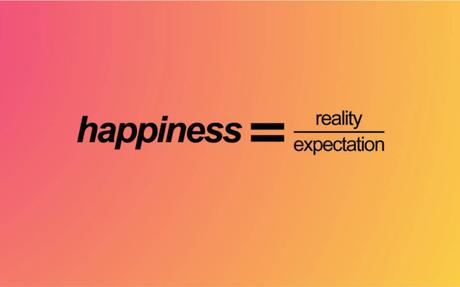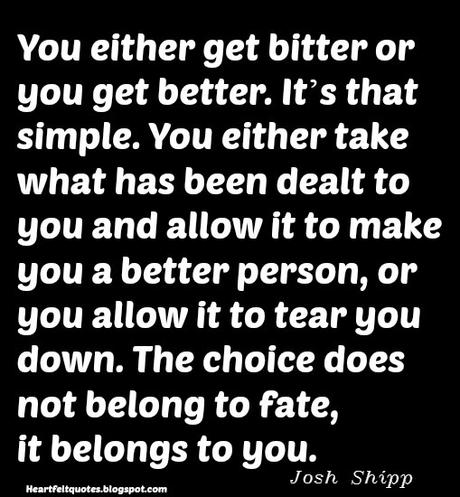I’m a big fan of Stoic philosophy, so I’m not complaining as such, when I say that money is the main motivation and driving force behind a given university’s programme of degrees on offer. It’s just something you’ve got to accept and no be too naive about.
The more students a university gets, the more funding it gets. When a uni has reached it’s capacity for under-graduate funding, it’ll start to churn out a load of post-graduate Master’s degrees too; for more funding.
A Numbers Game
The more universities there are, the more entry standards drop.
Gone are the days for example, that a good 2:1 degree are required for entry onto a Master’s degree programme, any shite degree will do as long as you can cough up the £10k+ tuition fees (or £15k+ if you’re a foreign student).
In addition, the more graduates that are produced by the proverbial conveyer belt of academia every year, the more competition there is for jobs. With a subject like Sport Science for example – there must be around 10-20 graduates each year, for each decent job that becomes available. If you don’t have connections, or don’t live in the right area, you’ve got 2 chances of getting a job – Bob Hope & No Hope.
At this point I’d like to mention Jocko Willink and his life changing Extreme Ownership Ted Talk – if like me, you did Sport Science and can’t get a job with that qualification, don’t complain and be a victim, take ownership for your own actions and move forward – watch the video to see what I mean:
*More on Extreme Ownership later.
Manage Expectations & Manage Your Happiness
You’ve put 3+ years of hard work in (presumably, you may have just got drunk every weekend), 5+ years if you include A Levels. It’s reasonable to expect that your degree would lead to a decent job – but don’t count on it.

A First Class degree in Sport Science from the UK’s best university + a Master’s Degree in Nutrition made me unemployable
The potential issue of not being able to get a good job is often compounded by parents, friends and other relatives who become disappointed with you for your apparent failure and lack of effort when it comes to your career.
This is often enough to make a reasonable person go through a proper-mental ‘falling down‘ episode. Constant harranging about getting a better job – without any practical suggestions, literally made me suicidal.
Mental health is often a vicious circle, it was in my situation anyway. Mental problems can lead to pretty agonising physical pains in joints & muscles + constant headaches.
These in turn makes you feel like shit, and the associated brain-fog and inverted-constant-thinking can make you a bit of a spaced out dumbass – which attracts the ridicule and often bullying of other people (you have to Stoically accept that people will always pick on those that they deem weaker then them – but that’s another issue & blog post).
“Bring me solutions, not problems”
I hear you say.
Well, I would just try and make it clear in your own mind, and your parents mind, that a good degree, depending on the subject – often means absolutely fuck all in the job market.
Have a specific plan written down somewhere, as to how you are going to acquire experience.
Experience is everything when it comes to getting a good job, if you want to work in the Sport Science sector, then put together a shit-hot presentation on Nutrition, Strength & Condition and/or Sport Psychology, and approach a load of football, rugby and tennis clubs, offering to present it for free in the pre-season…then offer more services for free to build up some experience.
I’d also recommend that you should generally:
Try and achieve your dreams but have a watertight contingency plan.
For every Conor McGregor living the dream, there’s a 100 more fighters working day jobs that they hate in order to pay the bills.
Your dream might be to work as a Strength and Conditioning coach, but it can be very helpful to have a back up plan, whether that be to go into personal training, or to do a post-graduate course in web development, or something else that’s remotely enjoyable but also in high demand in the job market.
Be Flexible. The Goalposts Always Move
I read somewhere (sorry, can’t remember where), that people with flexible mindsets are the happiest. For example, if your plans for the day fall apart for some reason, don’t bitch and complain about it, be flexible – get on with something else. This is the underlying theme in the book – Who Moved My Cheese?
http://editorialcartoonists.com/cartoon/display.cfm/128677/
If your career plans don’t come to fruition like you hoped, don’t be bitter. Shit happens, re-group, re-plan and start again. There is loads of work in web development at the moment for example, if you enjoy maths, that might be something to look at. It might sound boring but believe me, when your middle aged and have kids, boring is good.
I have a number of friends now, from football coaches to Strength Coaches, who are looking for a career move because they have to work evenings & weekends and the pay is not great.

Comfort and getting what you want all the time breeds weakness. Discomfort and suffering is the only true way to build character (and empathy).
- Don’t blame anyone else for the situation you’re in – Unless someone forced you at gunpoint, it was your decision to study a particular subject (*see the Extreme Ownership video above)
- Find a positive way to react
- Make a plan and get after it
In the long run I have definitely benefited from my quite horrific bout of post-grad-depression. I really appreciate my ‘boring’ job in digital marketing; I’ve managed to develop a decent level of emotional intelligence, and the depression pretty much forced me to read about philosophy, psychology and nutrition (nutrition has a huge impact on mental health).
I think I am reasonably well-rounded person, but more importantly I’m on the proverbial path to self-development and constant improvement. If everything had have gone perfectly for me after graduation – I think I would have been a bit of an arrogant prick.
MMA Saved my Life
MMA is not just for meatheads, there’s many a life-lesson to be learnt in the physical and mental turmoil that can be part of the path to MMA-proficiency.
The goal posts always move – people are always improving and new techniques are always being developed. Whilst I was probably half decent (for someone in the UK) at Brazilian Jiu Jitsu 10 years ago for example, I’m terrible by today’s standards.
You think You’re Good, then Find out You’re Not – the few times I let myself think I was decent at MMA, I would always come crashing back down to reality. This can force you to avoid comparisons with other people and just focus on your own constant improvement.
In MMA you need to take an objective look at your skills and where you have short-comings – you should do the same with your career.
The best thing I did was to take a logical & objective look at the job market, rather than have a loose plan based on emotional goals.
MMA also taught me the importance of physical health when it comes to mental health. By reducing certain foods that cause inflammation and prevent recovery between training sessions for example, I found my mood improved considerably. This led to me cutting out dairy, wheat and eventually sugar. Gut health is also crucial for reducing inflammation and also for mental health.
MMA also got me into yoga and meditation – both great for overall wellbeing – there’s definitely a link between physical tension and muscle-stiffness, with mental levels of anxiety.
For more information on diet & depression please see this blog post.
Finally, if you are suffering from any form of post-graduate-depression, I’d encourage you to watch this podcast with Tim Ferris (who became suicidal after an issue with his graduation from Princeton)
Finally, whether you’re disillusioned with your career, or the BS of the workplace in general, I’d definitely recommend a read up of Stoicism. Remember you’re not on your own, this is a temporary problem that you can work through and grow from.
Oh and from a personal point of view, thanks to Ben for giving me a chance to change careers at the age of 32.
Peace x

